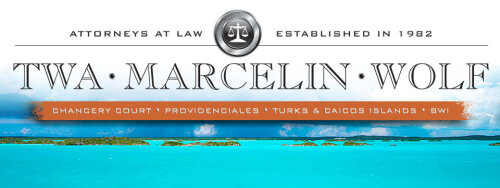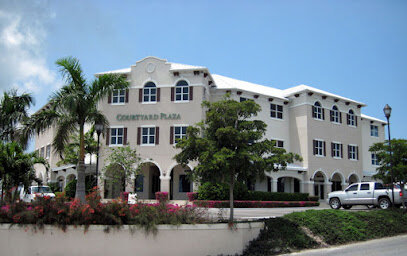Best Land Use & Zoning Lawyers in Turks and Caicos Islands
Share your needs with us, get contacted by law firms.
Free. Takes 2 min.
Free Guide to Hiring a Real Estate Lawyer
Or refine your search by selecting a city:
List of the best lawyers in Turks and Caicos Islands
About Land Use & Zoning Law in Turks and Caicos Islands:
Land Use & Zoning laws in the Turks and Caicos Islands govern how land can be used and developed within the territory. These laws regulate the types of activities that can be carried out on a particular piece of land, such as residential, commercial, or industrial use, as well as the permissible building heights and sizes. Zoning also plays a crucial role in preserving the natural environment and maintaining a balance between development and conservation.
Why You May Need a Lawyer:
Legal assistance may be necessary in various situations related to Land Use & Zoning, such as disputes over property boundaries, obtaining permits for development projects, rezoning applications, appealing zoning decisions, or compliance with zoning regulations. A lawyer can help navigate the complex legal framework, interpret zoning laws, negotiate with authorities, and represent your interests in legal proceedings if needed.
Local Laws Overview:
In the Turks and Caicos Islands, land use and zoning laws are primarily governed by the Physical Planning Ordinance and the Development Manual. These laws set out the procedures for land development, including the application process for planning permission, building regulations, environmental impact assessments, and enforcement mechanisms. It is essential to comply with these regulations to avoid penalties and legal challenges.
Frequently Asked Questions:
1. What is the process for obtaining planning permission in Turks and Caicos Islands?
In Turks and Caicos Islands, you need to submit a detailed development proposal to the Planning Department for review. The application will be assessed based on factors such as zoning regulations, environmental impact, and community impact before a decision is made.
2. Can I apply for a zoning variance if my proposed land use does not conform to existing regulations?
Yes, you can apply for a zoning variance to seek permission for a land use that deviates from the zoning laws. However, obtaining a variance is often a complex process that requires strong justification and support.
3. What are the penalties for violating zoning regulations in Turks and Caicos Islands?
Violating zoning regulations can lead to fines, stop-work orders, or even legal action. It is crucial to ensure compliance with zoning laws to avoid costly consequences.
4. Can I appeal a zoning decision in Turks and Caicos Islands?
Yes, you have the right to appeal a zoning decision if you believe it is unjust or unreasonable. An experienced lawyer can help you navigate the appeals process and present your case effectively.
5. How can I determine the zoning regulations that apply to my property?
You can consult the Planning Department or review the official zoning maps and regulations to understand the zoning classification of your property and the permissible land uses.
6. What are the key factors to consider when buying land for development in Turks and Caicos Islands?
When purchasing land for development, it is essential to consider zoning restrictions, building codes, environmental regulations, infrastructure requirements, and potential future developments in the area.
7. How can a lawyer help me with land use and zoning issues?
A lawyer specializing in Land Use & Zoning can provide legal advice, assistance in permit applications, representation in negotiations and disputes, compliance with regulations, and advocacy in legal proceedings to protect your interests.
8. Are there any incentives or exemptions available for certain types of developments in Turks and Caicos Islands?
Yes, there are incentives and exemptions offered by the government for developments that promote sustainable practices, conservation efforts, affordable housing, or economic growth. Consult with a legal expert to explore these opportunities.
9. How can I ensure that my development project is environmentally responsible?
By conducting environmental impact assessments, using sustainable building practices, minimizing resource consumption, preserving natural habitats, and complying with environmental regulations, you can ensure that your development project is environmentally responsible.
10. What are the current trends shaping Land Use & Zoning in Turks and Caicos Islands?
Recent trends in Land Use & Zoning in Turks and Caicos Islands include promoting sustainable development, enhancing infrastructure, protecting coastal areas from erosion and sea level rise, integrating smart technologies into urban planning, and encouraging community engagement in decision-making processes.
Additional Resources:
For further information on Land Use & Zoning in Turks and Caicos Islands, you can visit the official website of the Department of Planning. You may also consider consulting local planning consultants, environmental agencies, or legal experts specializing in property law.
Next Steps:
If you require legal advice or assistance regarding Land Use & Zoning in Turks and Caicos Islands, it is recommended to seek the expertise of a qualified lawyer with experience in this field. Contact a reputable law firm or legal practitioner to discuss your specific situation and explore your options for legal representation and guidance.
Lawzana helps you find the best lawyers and law firms in Turks and Caicos Islands through a curated and pre-screened list of qualified legal professionals. Our platform offers rankings and detailed profiles of attorneys and law firms, allowing you to compare based on practice areas, including Land Use & Zoning, experience, and client feedback.
Each profile includes a description of the firm's areas of practice, client reviews, team members and partners, year of establishment, spoken languages, office locations, contact information, social media presence, and any published articles or resources. Most firms on our platform speak English and are experienced in both local and international legal matters.
Get a quote from top-rated law firms in Turks and Caicos Islands — quickly, securely, and without unnecessary hassle.
Disclaimer:
The information provided on this page is for general informational purposes only and does not constitute legal advice. While we strive to ensure the accuracy and relevance of the content, legal information may change over time, and interpretations of the law can vary. You should always consult with a qualified legal professional for advice specific to your situation.
We disclaim all liability for actions taken or not taken based on the content of this page. If you believe any information is incorrect or outdated, please contact us, and we will review and update it where appropriate.
Browse land use & zoning law firms by city in Turks and Caicos Islands
Refine your search by selecting a city.















